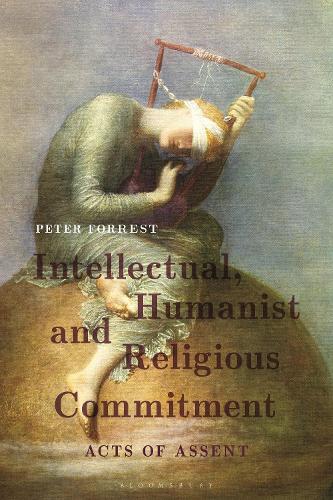
Intellectual, Humanist and Religious Commitment: Acts of Assent
(Paperback)
Publishing Details
Intellectual, Humanist and Religious Commitment: Acts of Assent
By (Author) Professor Peter Forrest
Bloomsbury Publishing PLC
Bloomsbury Academic
17th June 2021
United Kingdom
Classifications
Tertiary Education
Non Fiction
Philosophy: epistemology and theory of knowledge
231.042
Physical Properties
Paperback
224
Width 156mm, Height 234mm
318g
Description
This book offers a rigorous analysis of why commitment matters and the challenges it presents to a range of believers. Peter Forrest treats commitment as a response to lost innocence. He considers the intellectual consequences of this by demonstrating why, for example, we should not believe in angels. He then explores why humans are attached to reason and to humanism, recognising the different commitments made by theist and non-theist humanists. Finally, he analyses religious faith, specifically fideism, defining it by way of contrast to Descartes, Pascal and William James, as well as contemporary philosophers including John Schellenberg and Lara Buchak. Of particular interest to scholars working on the philosophy of religion, the book makes the case both for and against committing to God, recognising that Gods divine character sets up an emotional rather than an intellectual barrier to commitment to worship.
Reviews
What offenses if any must one commit against a rigorous standard of reason to certify theism as a defensible position In this wide-ranging, engagingly written exploration, Peter Forrest uses the notion of assent and the sort of hypothesis-confirmation methodology familiar in the sciences to arrive at a principled epistemology for a defense that is realist about truth and conforms to regular norms of reasoning. -- Evan Fales, Associate Professor of Philosophy, University of Iowa, USA
We no longer naively believe in fundamentalisms - in religion, politics, science. But scepticism overreacts, since the universe must be some way and we have many clues. In a masterly synthesis, Forrest fits together the pieces from logic, physics, ethics and religion. We have a reasonable faith that deserves commitment -- James Franklin, Professor of Mathematics, University of New South Wales, Sydney, Australia
Peter Forrest defends commitments--acts of assent--as responses to lack of epistemic innocence concerning disputed philosophical, religious and political questions. After identifying and explaining rules governing reasonable commitments, Forrest argues that it is reasonable to commit to what he calls reason, humanism, and God. While I think that even Forrest would be surprised if many followed him in these commitments, I also think that many will be prepared to follow Forrest part way, ending up with what they take to be reasonable commitments at odds with those that Forrest himself endorses. In that way, Forrest work can meet a condition that he thinks that it must meet if it is to be of value: guiding individuals to make up their own minds. -- Graham Oppy, Professor of Philosophy, Monash University, Australia
Author Bio
Peter Forrest is Adjunct Professor of Philosophy at University of New England, Australia.
